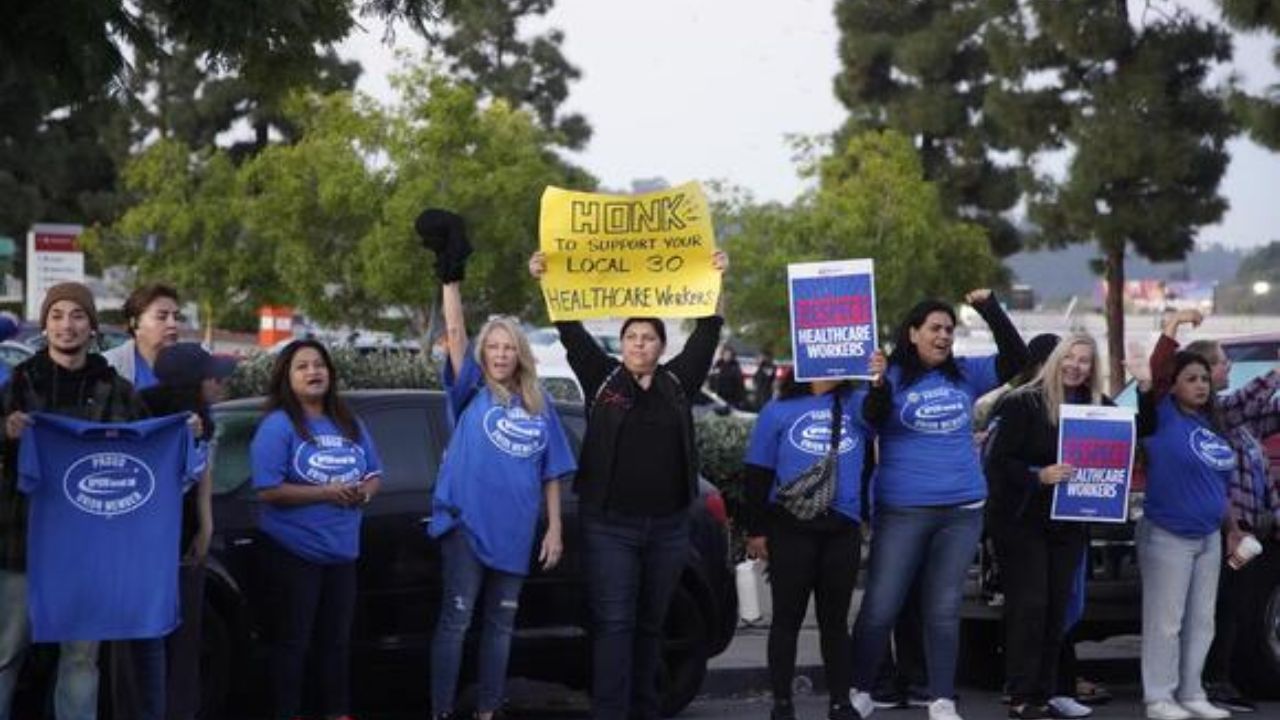At 6 a.m. on Wednesday, picketers assembled outside various Kaiser Permanente facilities in San Diego, initiating a three-day strike due to their dissatisfaction with the contract offers from their employer. This strike, which has been dubbed the largest healthcare strike in U.S. history, saw solidarity from healthcare workers across the nation.
By 7 p.m. on the same day, Kaiser released a statement announcing that they had reached several “tentative agreements” concerning wages, hiring policies, and benefits. However, the coalition of unions orchestrating the strike nationwide expressed that they were still waiting for a substantive response from Kaiser executives regarding their primary concerns. These include ensuring safe staffing levels, protecting healthcare worker jobs from outsourcing, and establishing fair wages to reduce staff turnover.
Caroline Lucas, a spokesperson for the union coalition, confirmed that the strike continued, and there were no ongoing negotiation sessions at that time.
The protest began early in the morning, with gatherings forming before dawn at locations like Kaiser Permanente Zion Medical Center in Grantville. Hundreds of people soon filled sidewalks, chanting slogans and displaying their discontent. As the morning light broke, they chanted, “Burn-out, Led to this, Turn-out!”
A similar scene unfolded in Kearny Mesa, up Interstate 15, where an enthusiastic crowd applauded passing vehicles that honked in support of their walkout.
Kaiser employees spoke about their desire to provide excellent patient care but lamented the challenging working conditions they faced. Reginald Villanueva, a City Heights resident working in inpatient medical transport, expressed concern about the crisis in patient care caused by overwhelming workloads and neglect of safety and repairs within the hospital system. He noted that the failure to reach an agreement with the union before the strike was disappointing.
Front-line workers, like receptionist Shiree Allen of Spring Valley at San Diego Medical Center, highlighted the persistent issue of understaffing and excessive workloads. Despite promises to hire more staff, many workers felt that they hadn’t seen any substantial changes.
A licensed vocational nurse on the picket line in Kearny Mesa emphasized that the pay increases offered by Kaiser during collective bargaining had failed to keep pace with inflation. Staffing levels were equally crucial, she noted, as healthcare workers required adequate support in clinics.
Alison Strangman, a long-time Kaiser employee and patient, underscored the need for Kaiser’s administration to prioritize hiring more employees, reducing the reliance on temporary staff, and improving pay to boost morale among workers.
Kaiser assured that their hospitals, urgent care centers, and pharmacies would remain open during the three-day strike. Patients could check the status of outpatient facilities on Kaiser’s website. As of 8:30 a.m., Kaiser San Diego reported that 11 out of its 20 hospital labs were closed due to the strike, affecting various locations in the region.
